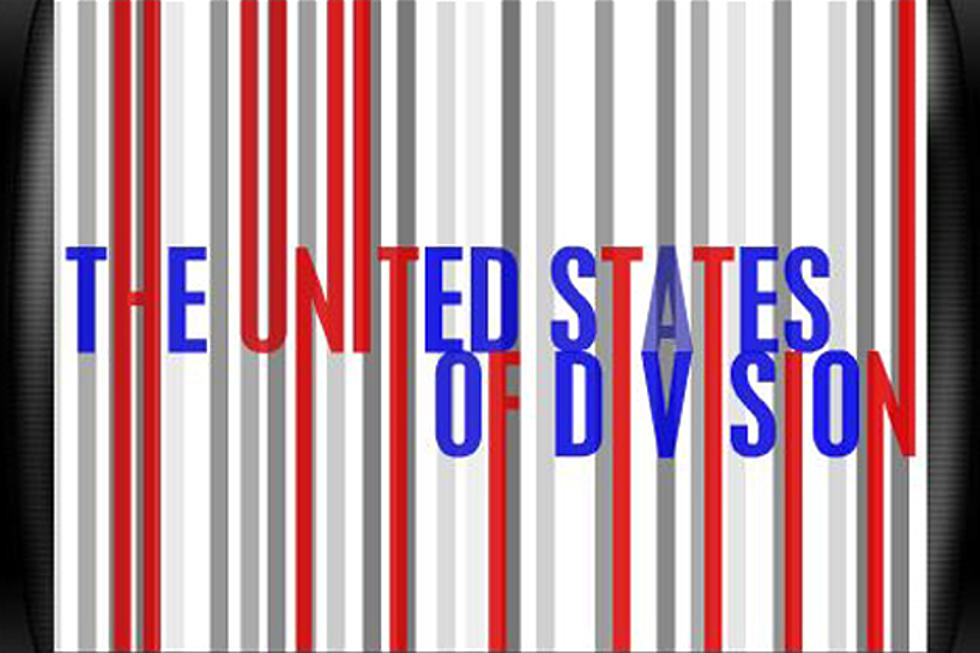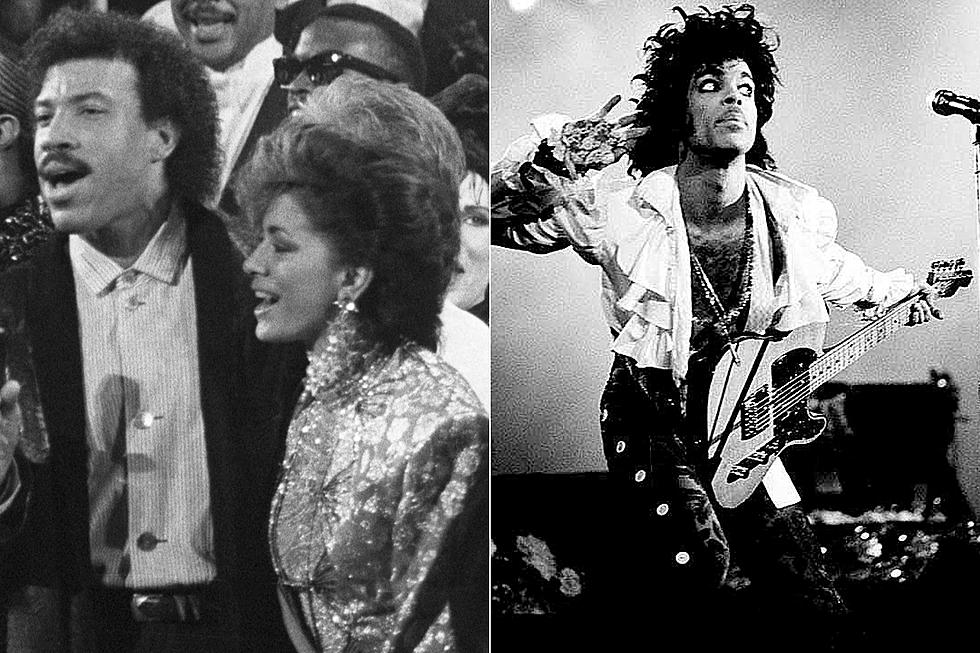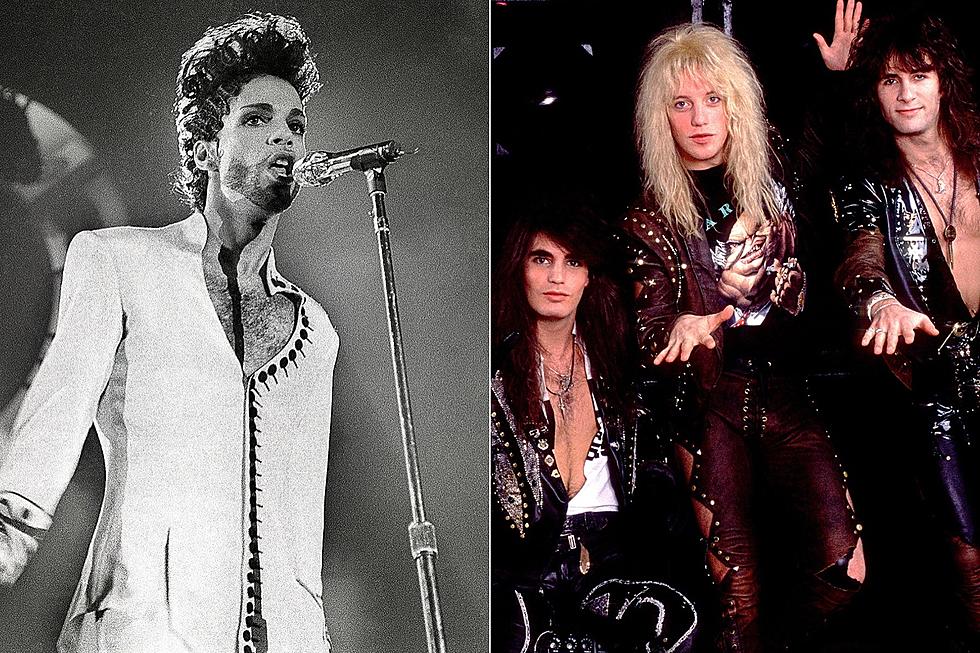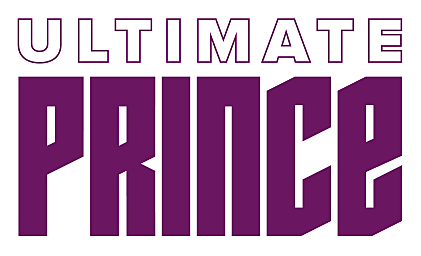
July 4, 2004: Prince Laments Our ‘United States of Division’
On Independence Day 2004, Prince delivered the politically charged track “United States of Division.”
He released it as a digital download b-side to the Musicology single "Cinnamon Girl." Behind an alluring funk rhythm and driving guitar, "United States of Division" touched on some of the most divisive issues plaguing America, including poverty, social injustice and religious freedom.
The singer painted a dark picture of American society, noting that “guns and drugs” have caused “hurt and pain.” In the chorus, Prince implored listeners to “stop fighting,” instead suggesting that “everybody make love.”
Later, the music icon wondered “Why must I say 'God Bless America'? / And not the rest of the world / Oh say can you see? / I love my country but I love God more.”
Watch Prince Perform "United States of Division"
Though “United States of Division” was one of the singer’s most overtly political tracks, Prince was never one to shy away from socially minded lyrics. Race relations, economic inequality and military action were just some of the many topics covered in his music.
This was especially true during the latter part of Prince’s career. 2004 track “Dear Mr. Man” featured professor and political commentator Dr. Cornel West and focused lyrically on the government’s indifference to issues plaguing the African American community. In 2015, Prince released the song “Baltimore,” inspired by the death of Freddie Gray, a black 18-year-old who died in police custody.
Prince even used the Grammys as a platform to briefly call attention to the Black Lives Matter cause. “Albums still matter,” the singer stated before giving out the Album of the Year award during the 2015 ceremony. “Like books and black lives, albums still matter.”
The rocker’s social consciousness was not bound to music. Though he vary rarely called attention to his work, Prince was an active philanthropist throughout his life. In addition to Black Lives Matter, the music icon was active with the organization Green for All, designed to create green jobs in disadvantaged communities, and #YesWeCode, a group that educates urban youth about technology.
“He wasn’t red, and he wasn’t blue,” activist Van Jones said when discussing Prince’s philanthropic work with Rolling Stone. “He was purple. With one sentence, you would think he was Republican, because he’d be talking about the economy, and with the next, you’d think he’s a liberal Democrat, because he was talking about the need to fight racism. It was a flow of insights and inspiration. At the end of the day, it was purple politically.”
Asked about what drew Prince to political issues, Jones responded, “He cares a lot about people. Nobody went to a Prince concert and said, ‘I don’t belong here. I’m not black. I’m not white. I’m not cool. I’m not straight. I’m not whatever.’ His cause was empowering and uplifting people. That didn’t stop when he walked off the stage or out of the studio. It was a current of genius trying to move the human heart.”
Prince Albums Ranked
More From Ultimate Prince









